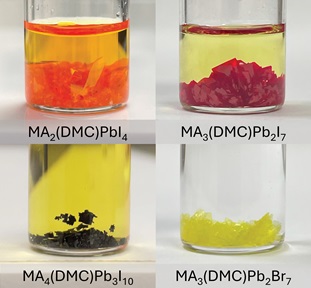The link between nanoparticles and colorectal cancer cells
Some types of nanoparticles may have an impact on human colorectal cancer cells, as Assoc Prof Dalton Tay has discovered.

Titanium dioxide, silicon dioxide and zinc oxide nanoparticles are commonly used to enhance the flavour and texture of food products, and keep them fresh. Although they are safe to consume in small amounts, little is known about the long term impact of nanoparticles on human health.
A team of researchers led by Assoc Prof Dalton Tay of NTU’s School of Materials Science and Engineering explored how these nanoparticles affect human intestinal colorectal cancer cells.
To this end, the scientists repeatedly exposed the cancer cells to low concentrations of the nanomaterials over multiple trials and found that they became 10% to 50% more resistant to chemotherapy drugs.
Colorectal cancer cells exposed to zinc oxide nanoparticles developed the most resistance, likely due to the production of unstable oxygen-containing molecules, called reactive oxygen species (ROS), when the nanoparticles entered the cells. The elevated levels of ROS produced by the stressed cells activated cellular responses that helped them and neighbouring cells resist treatment.
Zinc oxide nanoparticles also caused colorectal cancer spheroids – cultured spheres of cancer cells mimicking actual tumours – to become more resistant to the treatments.
“Our findings suggest that there may be a link between some types of nanoparticles and the susceptibility of cancer cells to chemotherapy,” says Assoc Prof Tay, adding that further studies are required to better understand this relationship and ensure the safe use of nanoparticles in food products.
Details of the study can be found in “Nanoparticle-induced chemoresistance: the emerging modulatory effects of engineered nanomaterials on human intestinal cancer cell redox metabolic adaptation” in Nanoscale(2022), DOI: 10.1039/d2nr03893e.
The article appeared first in NTU's research and innovation magazine Pushing Frontiers (issue #22, August 2023).




.tmb-listing.jpg?Culture=en&sfvrsn=29c7e020_1)
.tmb-listing.jpg?Culture=en&sfvrsn=55153609_1)

